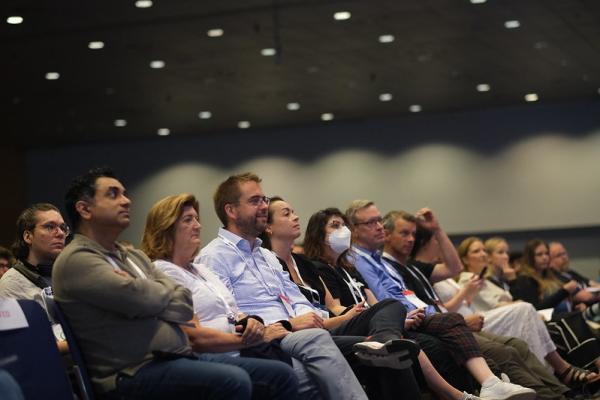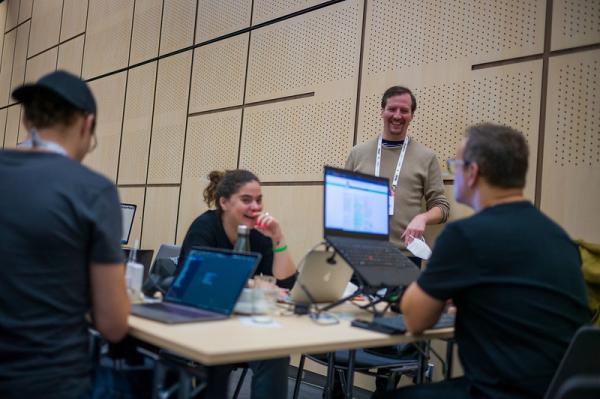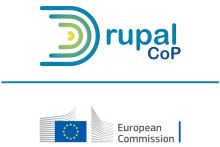
DrupalCon Vienna 2025: A Journey Through Drupal’s Past, Present, and Future
In 2025, Drupal continues to evolve as a powerful, open-source content management framework that balances flexibility, scalability, and extensibility. As we prepare to gather in Vienna a city rich in both culture and innovation, this year's DrupalCon is more than a conference. It's a comprehensive reflection on how Drupal has matured over the years, where it stands today, and where it’s headed next.

DrupalCon Barcelona 2024, by Jo Da
Drupal’s Origins: Laying the Foundation for Open Web Platforms
Drupal began as a simple message board over two decades ago, yet its architecture was built on a vision of extensibility and community collaboration. What started as a hobby project grew into a full-fledged CMS adopted by developers, governments, universities, and enterprises around the globe.
From the early introduction of modules and hooks to the groundbreaking adoption of Symfony components and modern PHP standards, Drupal's architecture has consistently prioritized maintainability and reusability. The rise of the Form API, Entity API, and Configuration Management System laid the groundwork for scalable content-driven applications.
Key innovations in the early years
- Introduction of a modular system enabling rapid extension of core functionality
- The evolution from procedural to object-oriented code structures
- Strong community governance and open contribution models
These early decisions positioned Drupal as a future-ready framework long before terms like "composable DXP" or "headless CMS" entered the mainstream.
Drupal Today: Engineered for Modern Digital Operations
In 2025, Drupal is no longer just a CMS, it's a backend digital experience engine that powers mission-critical applications across sectors. Its flexibility has enabled it to adapt to a changing landscape of decoupled front ends, API integrations, and marketing automation.
Technical highlights of Drupal today
- API-First Design: Drupal 10 and 11 offer robust REST, JSON:API, and GraphQL support out-of-the-box, making integration with JavaScript frameworks and external services seamless.
- Advanced Content Modeling: With custom entities, paragraphs, taxonomy systems, and fieldable content types, teams can represent structured and reusable data at any scale.
- Decoupled and Progressive Decoupling: From fully headless implementations to progressively enhanced Twig-based front ends, Drupal supports a spectrum of architectural patterns.
- Multisite + Multilingual: Multisite capabilities combined with flexible language modules enable the deployment of global, multi-brand, and localized content ecosystems.
Industry Applications
- Government: Role-based access control, WCAG compliance, multilingual content management, and enterprise security protocols are supported natively, making Drupal ideal for secure and accessible government portals.
- Enterprise Marketing: Marketers and developers benefit from multisite capabilities, flexible editorial workflows, and seamless integration with CRM, DAM, and analytics tools — all critical for omnichannel delivery.
- Education & eLearning: Institutions leverage Drupal as the core CMS for AI-assisted platforms that recommend content, track learning progress, and personalize student engagement through decoupled UIs and custom APIs.
This modular and composable architecture enables Drupal to function not only as a website builder but also as the integration layer between diverse enterprise systems.
Looking Ahead: Drupal’s Technical Roadmap
As we look beyond Drupal 10 and 11, the project continues to invest in modernization and developer experience. The core roadmap emphasizes:
- Enhanced Admin UI: React-based administrative themes and improved UX for non-technical users
- Automatic Updates: Secure and stable auto-updates for core and contributed modules
- Project Browser: A visual interface to discover, install, and evaluate contributed modules from within the admin UI
- Better Decoupling Support: Continued investment in GraphQL schemas, real-time data synchronization, and rendering decoupled menus/navigation
- Developer Tooling: Improved DX through Composer support, API stabilization, and increased PHP type safety
Community initiatives such as GitLab CI/CD integration, increased test coverage, and standardization around frontend tooling (Webpack, Vite, etc.) are also helping push Drupal closer to being a developer-first platform without sacrificing editorial ease-of-use.

DrupalCon Prague 2022, by Michael Schmid
Join the Evolution in Vienna
DrupalCon Vienna 2025 offers a rare opportunity to immerse yourself in the full journey of Drupal from its humble origins to its role in powering complex, enterprise-grade applications. Whether you're a backend architect, frontend engineer, digital strategist, or platform lead, there’s something for everyone.
What to expect
- Sessions from core maintainers and initiative leads
- Hands-on workshops for developers transitioning to decoupled and API-first builds
- Real-world architecture case studies from large-scale Drupal implementations
- Opportunities to contribute to the Drupal project and shape its future
Why It Matters
In a world where digital transformation is no longer optional, Drupal continues to prove its value by being adaptable, secure, and deeply rooted in the principles of open collaboration. Its future depends not just on the technology, but on the people contributors, builders, and thinkers who continue to push the platform forward.
At DrupalCon Vienna 2025, you won’t just learn about where Drupal has been. You’ll help shape where it’s going next.
Mark Your Calendars
🗓️ Dates: October 14–17, 2025
📍 Location: Austria Center Vienna, Vienna, Austria
🌐 Official Website & Registration: https://events.drupal.org/vienna2025/registration-information
🐦 Follow the buzz: #DrupalConVienna #DrupalCon2025
Stay Tuned!
This blog is just the beginning. Over the next few weeks, I’ll be sharing:
- Technical spotlights on Drupal CMS features
- Speaker highlights and session previews
- Tips for first-time technical attendees and contributors
So bookmark this space, and get ready to experience DrupalCon Vienna 2025 like never before.
Are you coming? Let’s connect!
Technical Lead
WSO2





